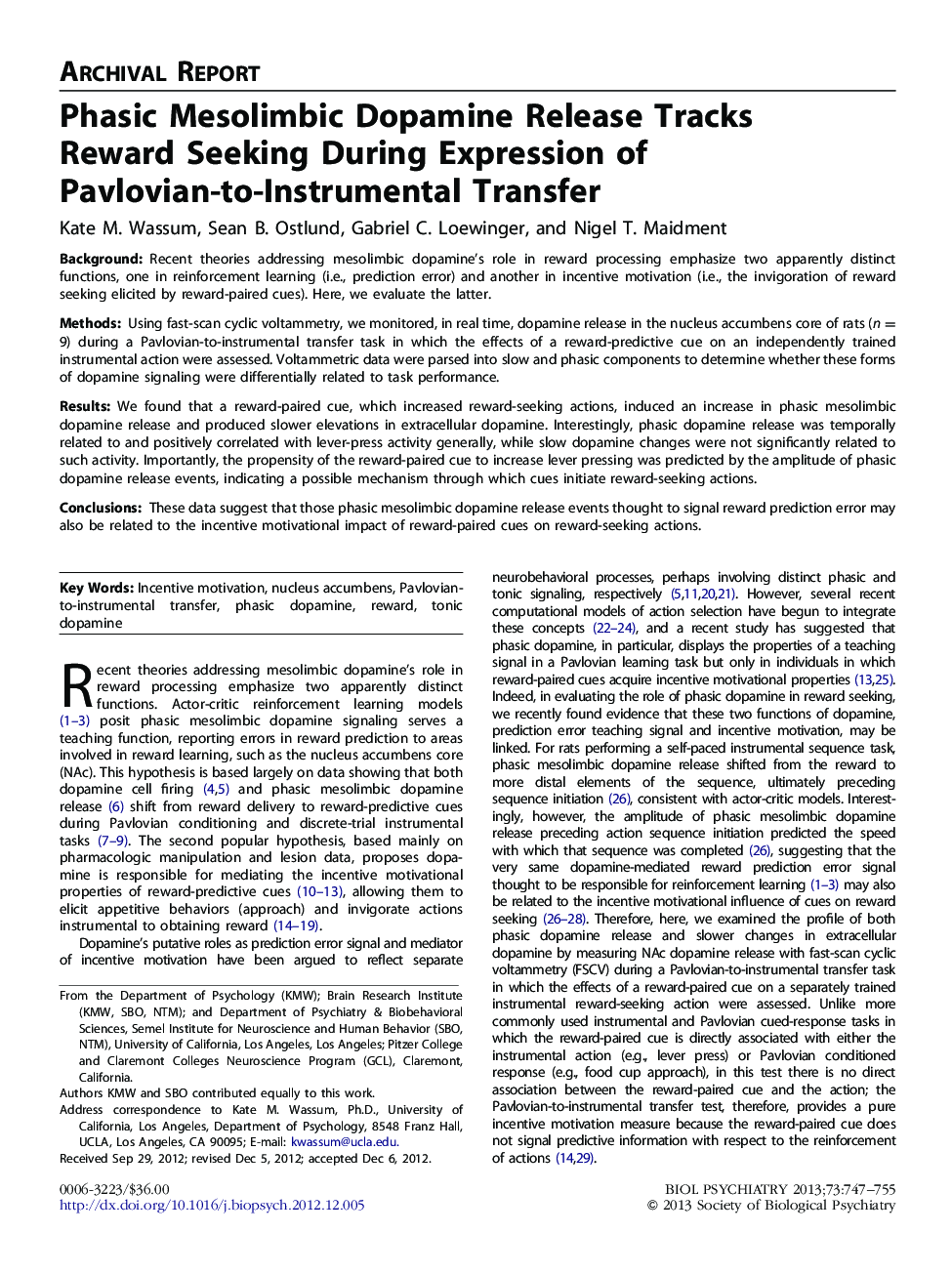| کد مقاله | کد نشریه | سال انتشار | مقاله انگلیسی | نسخه تمام متن |
|---|---|---|---|---|
| 4177866 | 1276456 | 2013 | 9 صفحه PDF | دانلود رایگان |

BackgroundRecent theories addressing mesolimbic dopamine’s role in reward processing emphasize two apparently distinct functions, one in reinforcement learning (i.e., prediction error) and another in incentive motivation (i.e., the invigoration of reward seeking elicited by reward-paired cues). Here, we evaluate the latter.MethodsUsing fast-scan cyclic voltammetry, we monitored, in real time, dopamine release in the nucleus accumbens core of rats (n = 9) during a Pavlovian-to-instrumental transfer task in which the effects of a reward-predictive cue on an independently trained instrumental action were assessed. Voltammetric data were parsed into slow and phasic components to determine whether these forms of dopamine signaling were differentially related to task performance.ResultsWe found that a reward-paired cue, which increased reward-seeking actions, induced an increase in phasic mesolimbic dopamine release and produced slower elevations in extracellular dopamine. Interestingly, phasic dopamine release was temporally related to and positively correlated with lever-press activity generally, while slow dopamine changes were not significantly related to such activity. Importantly, the propensity of the reward-paired cue to increase lever pressing was predicted by the amplitude of phasic dopamine release events, indicating a possible mechanism through which cues initiate reward-seeking actions.ConclusionsThese data suggest that those phasic mesolimbic dopamine release events thought to signal reward prediction error may also be related to the incentive motivational impact of reward-paired cues on reward-seeking actions.
Journal: Biological Psychiatry - Volume 73, Issue 8, 15 April 2013, Pages 747–755